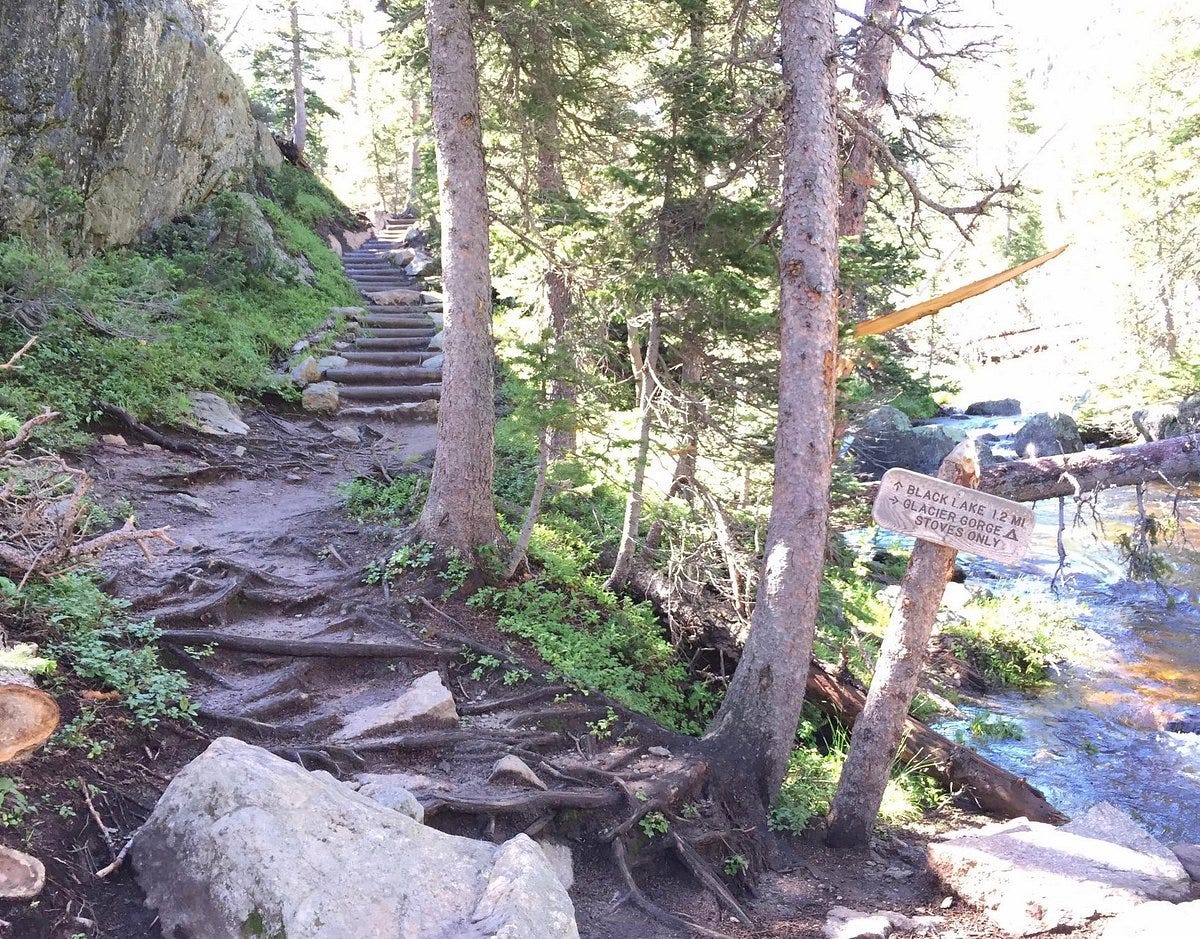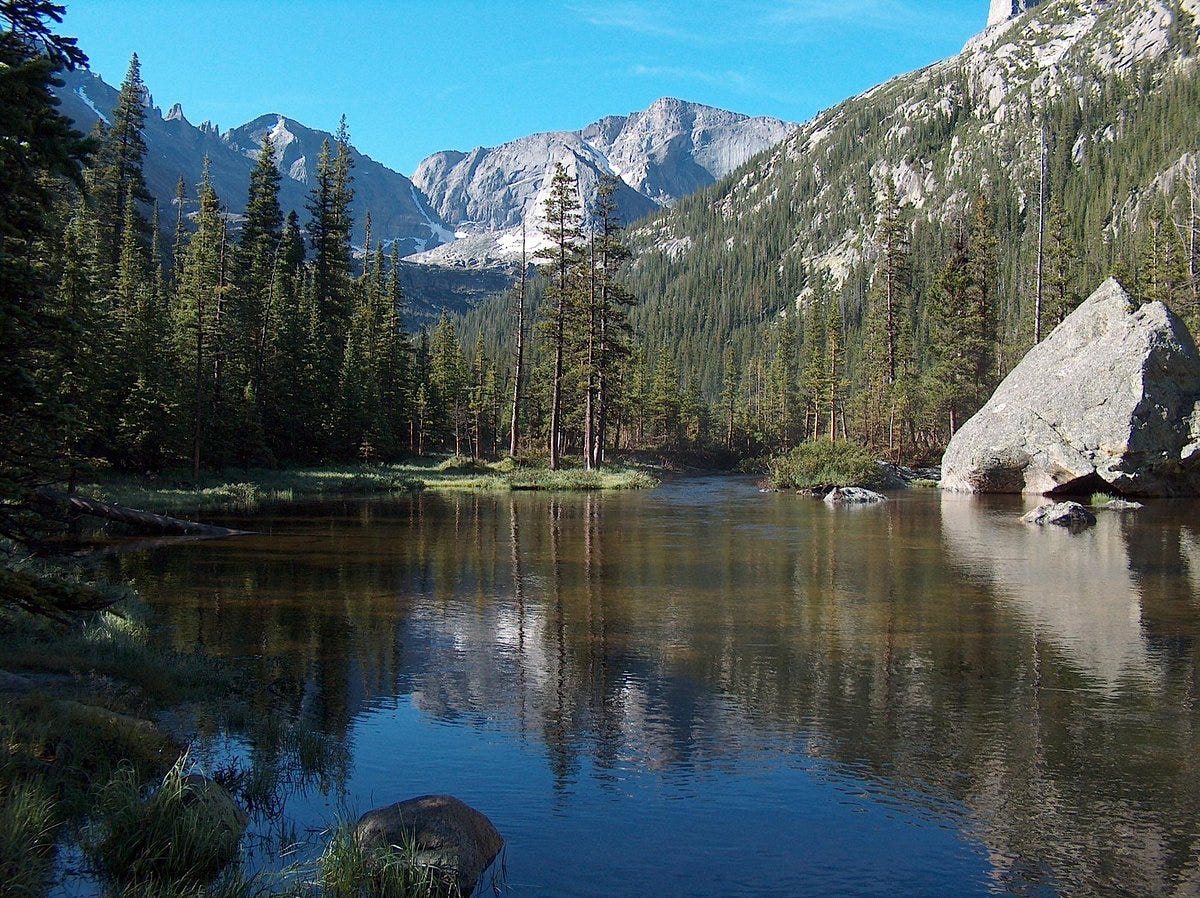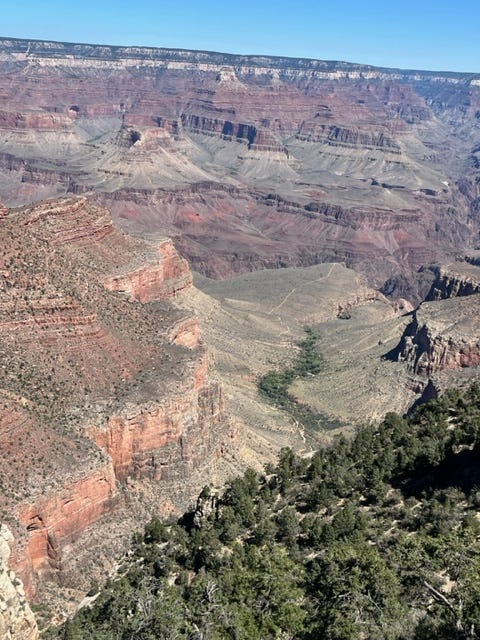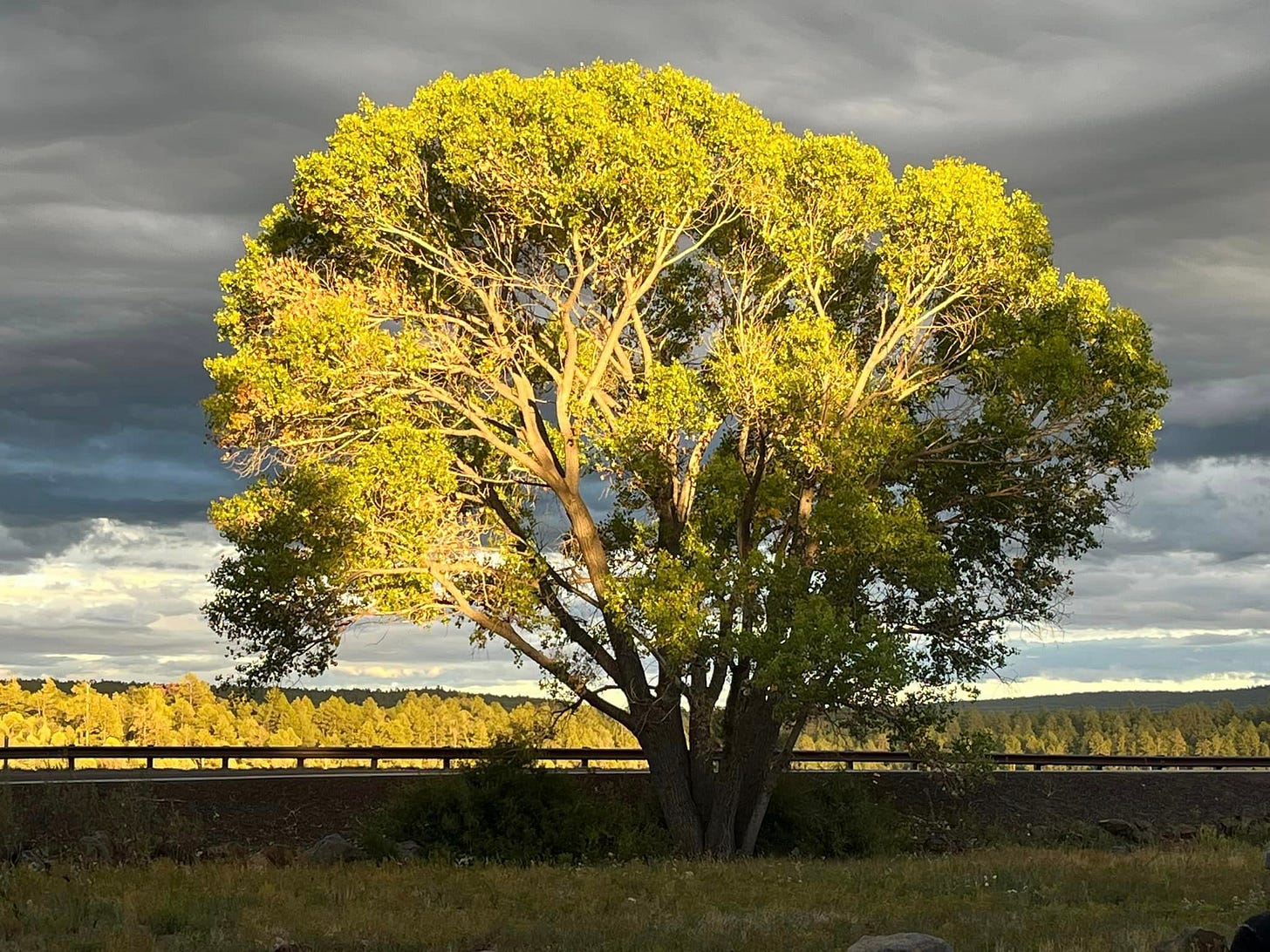“The stars shall fade away, the sun himself grow dim with age, and nature sink in years, but thou shalt flourish in immortal youth, unhurt amidst the wars of elements, the wrecks of matter, and the crush of worlds.” - Joseph Addison
We were camping at Cooper’s Creek, a trickling stream that slipped through the dune line on Lake Michigan and emptied into the big water. Everyone was barely out of their teens and the males were confronting a military draft that might prevent them from seeing even one more year. The Vietnam War was an ephemeral being that glided like a ghost through our youth and nudged us awake in our sleep and shaded the sun without clouds. On a random autumn day in 1971 we were gathering driftwood for a fire next to a great inland sea and we were as worried about our tomorrows as we were excited about our modest weekend adventure.
“You probably won’t believe this,” Robbie said, “but this is the farthest west I’ve ever been in my entire life.”
“What? Are you serious?”
“Yeah, man. Before this trip, it was Grand Rapids.”
“What the hell?”
We both dropped gnarled chunks of wood into the fire as the girls talked and waded along the shore. Robbie was from a typical family of average means with a father who worked in management for an automotive supply company. His parents had purchased a cabin in the northern part of Michigan and he spent most of his summers up there on an inland lake, swimming, fishing, and skimming the water in a motorboat. Their economics were not rare for people building lives in the thumping car economy that was giving the country its driving wheels to move and grow. My parents had struggled after their northward migration from the Mississippi River bottomlands and my perspective on Robbie’s life was that he had been born almost into great privilege.
“I guess I shouldn’t be that surprised,” I told him. “I didn’t see a Great Lake until I hitchhiked over to Huron after high school graduation.”
“But that’s only a hour from your house,” Robbie said. “How the hell do you live in Michigan and not go to one of the lakes?”
“I guess because my parents were always working. There wasn’t money or time. I did always dream of seeing one of those giant freighters from the pictures in our elementary school textbooks about Michigan.”
“And did you?”
“Yeah, one was passing under the Bluewater Bridge. Pretty amazing.”
A warm October breeze came across the water and fluttered the walls of our discount store nylon tents that were staked to the soft sand. Not much weather would be required to toss us over in our sleep but the sun laying down in the western haze off towards Chicago suggested a calm night. Robbie, staring at the fire, pushed his hands deep into his blue jean pockets, and asked a question without looking up at me.
“Any chance you want to show me around out West?”
“Not sure what you mean.”
“Well, you’ve been hitchhiking around out there and probably know places to camp and hike, things like that. I’d like to see the Rocky Mountains, for sure.”
“You’re not a hitchhiker, Robbie. We both know that.”
“I’m not going to be, either. Thought I’d drive us.”
“Interesting idea, but I’ve got no money for gas.”
“That’s okay. My parents gave me a gas card for the Torino. I can cover those travel costs.”
“Well, let me think about it.”
There seemed an urgency about his request. I had a sense he might have been hiding a terminal health diagnosis and just wanted to get quick glimpse of the world before his fate prevailed. In the draft lottery, we had both drawn low numbers and were certain to be inducted into the Army and likely face combat in the jungles of Southeast Asia. Maybe he had a vision of his end in the middle of a firefight, slogging through a rice paddy. A few of our friends had already died and every night on the network news the body counts from the war were reported with silhouettes of soldiers and numbers of dead for the U.S. and North Vietnam. Meaningless death was being measured by what looked like a sports scoreboard.
Travel for me felt like running away from my dread. I was not going to war. Too much of my time had already been spent reading protest pamphlets and hitchhiking to Washington for marches to demonstrate against my country’s adventurism, which was just as easily labeled imperialism. Not much more than an hour from my mother’s front door, Dow Chemical Company was making the Napalm and Agent Orange that was being dropped onto humans and vegetation in South Vietnam and Laos. What was not burned out of existence was poisoned and died at varying rates whether it was tropical foliage or humans still formulating images of their futures. I have, in recent years, watched the fathers of younger friends die from cancer directly caused by their exposure to the chemical defoliants used as weapons when they served in that immoral conflict.
Around the first of July the next year, Robbie and I raced across Iowa and Nebraska in his green Ford and I am certain he grew tired of my endless jabbering about the Platte River and how it had served as an artery in the heartbeat of Manifest Destiny. There had to be the ghosts of the almost 20,000 pioneers flying through the cottonwoods leaning over the dark water, dead from arrows, bullets, yellow fever, pneumonia, tuberculosis, infections, and even hunger. The number of lost native peoples will never be known as they resisted the invading plague of the ambitious and the adventurous drawn to the unknown possibilities at the end of the Oregon Trail. We did not stop, and turned, instead, to the southwest, in the direction of the national park named after the famed mountain range that divided the continent and stood between the previous century’s dreamers and their dreams.
After getting a map at the entrance to Rocky Mountain National Park, we drove to a trailhead near Glacier Gorge. This was only my second trip to the national preserve and I had spent the initial visit exploring the Endovalley region and had hiked and camped along the old Fall River River Road, a one-way gravel route cut out of the mountainsides in 1920. Robbie’s first adventure was to be a climb up to Black Lake along a reasonably challenging but accessible trail. Neither of us expected physical difficulty even though we were at altitude and the map indicated the five miles up increased our elevation close to four thousand feet to peak at near eleven thousand. The lake sat just below the Continental Divide. Robbie was carrying a small frying pan and a short fishing rod in his gear and I had a collapsible pack stove that we hoped to employ frying trout we pulled from the glaciated lake.
“So, this is better, eh?” I asked.
We were only a mile up the trail and standing along a creek, bubbling down from melting snow.
“Yeah, just beautiful. Didn’t think it would be this amazing.”
“I doubt anybody does. Wait till you see the Grand Canyon. Completely different experience but overwhelming.”
“I’ve got the rest of the summer.”
“Me, too.”
We did not talk as we climbed but breathed comfortably in the thin air. I was still a serious collegiate distance runner and Robbie had been a high school athlete who had become actively involved in intramural sports at the university. When we came into the clearing at Black Lake we found a grassy spot to pitch our camp tents and a long shadow from the divide obscuring the afternoon sun was already reaching halfway across the water. Robbie was standing on the lake’s edge fishing before I had completed raising my tent. Even though he had grown up next to water, I assumed catching trout was going to be different than hooking perch off the end of boat docks in Northern Michigan. In less than a half hour, though, he had pulled up four ample trout and laid them on his aluminum pan between our tents.
“Don’t think I needed a fly or any kind of lure,” he said. “There’s so many in there they were jumping at movement.”
“Pretty amazing.”
“I was confident, too, before we got here. Look at this. I brought a little plastic bottle of vegetable oil for frying.”
“Ha, outstanding. Let’s clean these guys and I’ll get my alcohol stove going.”
Even without the benefit of a wood fire, the smell of the trout frying in the crystalline air affected me almost like an intoxicant. I do not recall ever being as hungry. Robbie had a Swiss Army Knife with a foldout fork and we passed it back and forth between bites, unconcerned about sharing the same utensil.
“I still don’t know what I’m gonna do,” he said, abruptly.
“I thought we weren’t going to bring that mess along on our trip.”
“I know. But I can’t stop thinking about it.”
“Who can? But if you can’t put it away in a place like this, it is going to eat you alive, buddy.”
“We’ve got decisions to make, ya know? Can’t be avoided.”
“For now, they can. We still have a couple of years of college. Besides, I’ve made my decision. I’m not going.”
“You gonna go to jail?”
“No, more likely Canada, if I have to. But I hate the cold.”
“I can’t run away from my family.”
“Run away or die in combat might be the final choice, though.”
“I guess I’d go, if I had to, but I’m afraid.”
“If I thought it really had anything to do with protecting our country, I’d go. But it’s a bullshit war that’s just about killing people to make money.”
“I guess.”
“You guess?”
He did not respond and instead pointed up at the Divide where gray clouds were assembling and darkening into a threatening purple and black. The wind coming down the talus slides off the peaks felt almost like winter and the late afternoon quickly began to look and feel like night. Tired from the five mile climb, we put our gear away and crawled into our tents to get out of the cold. I put on a sweatshirt beneath my windbreaker and laid my head against the soft end of my pack and was asleep in minutes.
I was awakened before dawn by the gentle weight of my tent walls pressing cold against my face. When I pushed them off, they collapsed further into my sleeping space. There was something outside but I did not want to get out of my bag and investigate. Instead, I sat up, unzipped the front flaps, and almost two feet of snow fell into the tent. We had slept through a Fourth of July snowstorm up in the high country. When I stuck my head outside, the only objects not visibly white were the ponderosa pines and the surface of the lake.
“Hey, Robbie. Wake up over there. You gotta see this.”
“See what? Hey, my tent’s falling down.”
“Mine, too. Stick your head out.”
In a minute, his arm reached out as if he were trying to brace himself to stand and it disappeared up to his bicep in the powdery white drift against his tent front.
“Oh, no. What are we gonna do?” He sounded more panicked than wondrous.
“What do you mean?”
“Do you think they’ll send rescue helicopters or something?”
“Robbie? You serious? It’s just snow.”
“Yeah, but a lot of it, and we didn’t bring food for another day. The trail’s probably covered, too. How will we find it.”
“Man, the sun will be over that ridge line in a little more than an hour and this stuff will melt fast and we’ll just walk down the mountain.”
“No, no. I think they will send rescue. We can’t take those kinds of risks.”
“Robbie, come on, man. Maybe go back to sleep until the sun hits our tents and this stuff turns into water and mud. We’ll be fine.”
“I won’t be able to sleep.”
We stayed inside our tents, though, and there was warmth in the mid-summer morning sun, even at that altitude. Mud caked our shoes as we packed our gear and made our way back to the trail, which was marked by rivulets of water running over stones and a few fallen limbs broken from the weight of heavy snow. Robbie did not seem interested in talking and we got down to the Torino with considerable time to spare for our trip south to Colorado Springs and the Garden of the Gods. Driving through Denver he hardly noticed the city and talked about Motown music almost the entire drive until we stopped along the interstate north of the springs and found a hamburger joint with picnic tables by a hill.
“You okay, bud?” His nervous chatter had become silence.
“I guess not. Not really.”
“What’s wrong?”
“Not sure. Feels like everything. I’ve gotta be honest with you, I’m just not having any fun out here.”
“We just got here, Robbie. Wasn’t last night kind of an adventure in the mountains?”
“I don’t think it’s that. I just hate the way everything feels. Our whole country seems screwed up with the war and protests and assassinations. What the hell is going on? How are we supposed to plan our lives?”
“I don’t know, man, just live the best way we know how. Deal with stuff as it comes up.”
He shook his head and crumpled up his burger wrapper and tossed it in a nearby trashcan.
“I’m sure you’re not gonna appreciate this but I’m gonna leave you here and head back to Michigan,” he said.
“What? Are you serious?”
“Yeah, this just isn’t working out how I thought it would.”
“What were you expecting?”
“I don’t know. Not feeling like this, I know. Come on, let’s get your pack out of the trunk. I want to leave now.”
“You’ve got to be kidding.” He was already opening the trunk. “You’re just gonna dump me here at a burger joint along the Front Range and head home?”
“Yeah, I know it doesn’t make much sense, but it’s what I feel.” He handed me my pack and then opened the driver’s side door and turned to look at me.
“This is kind of hard to believe,” I said.
“Yeah, for me, too.” He stuck out his hand. “Hope you stay safe and have a good summer. I’m sure I’ll see you back on campus in the fall and you can tell everyone what a great guy I am.”
“Robbie, come on, man.”
He sat in the car, turned the ignition to start the engine, pulled the door shut, and grimaced at me as he backed out of the parking space. My friend did not look at me again and quickly turned onto the access road. I tracked his route with my eyes when he crossed an overpass and headed back north on I-25. For a few minutes, I thought he was committing a prank of some sort but he kept going out of my sight. I took my backpack down, laid it against the curb, and sat in the dirt, trying not to think. I am not sure how long I was there, traffic hissing past, but most of the day was gone when I stood up and strapped on my rig and walked down to the state road going west.
I thumbed rides over the Front Range and into the back country, down through Durango and into New Mexico before crossing over into Arizona. The miles passed in the back of pickups and a few trucker cabs, a couple of camper vans, and several sedans. Everyone was interested in my story but me. I slept often in ditches by the side of the highway or back up in beautiful mountain groves of ponderosas in places like the Kaibab Plateau. A few people reminded me I was crazy to be out on the roads alone and that there were lunatics on the move. The country opened up, though, and I stopped thinking about the horrors that had unrolled since that day in 1963 when I was a boy staring at a flickering old black and white Zenith TV, listening to what sounded like the end of the world. My money ran out fast but I got odd jobs doing things like painting and salvage work and washing dishes. My summer was more interesting than Robbie’s, I was certain.
Fifty years later I was riding those same roads on a motorcycle and began thinking of Robbie’s unnamed despair, for himself, for the country where he and I became men. I am with two friends on their bikes and we are winding through the Mogollon Mountains of New Mexico’s Gila National Forest. The air is warm and the sky is pastel and we roll north off the edge of the Mogollon Rim toward Arizona and then up to the Grand Canyon. It is hard not to feel hopeful and happy on days like this and it is just as difficult to avoid thinking about how little America has changed since that Dallas gunfire took us off course. We have had our victories as people but they feel now as if they are dissolving in the foamy solvent of old anger and we are almost back where we started.
The land in the West, though, lays bright and colorful in the plateau country of Northern Arizona and Southern Utah. Hopelessness has no place out here and the rocks of ages are mostly unbothered by human intentions. Surrender, though, can often feel logical after long trials like the ones that continue to test our nation. I doubt we will ever quit because we did not make it this far without overcoming frequent failure.
Leaving the Grand Canyon and crossing into Monument Valley I thought of a man who loved this land before it was known to settlers and outlanders from the East. John Wesley Powell, the one-armed Civil War veteran, had conducted the first geographical exploration of the canyon by floating with a small team down the roaring Colorado. There was endless privation and near death risks almost daily and a saner man might have retired from his improbable task after surviving the horrors of slaughter in war. In his notes, though, Powell expressed only enthusiasm and optimism for the outcome of his efforts.
“We have an unknown distance yet to run,” he wrote. “An unknown river to explore. What falls there are, we know not; what rocks beset the channel, we know not; what walls ride over the river, we know not. Ah, well! We may conjecture many things.”
Turning toward Texas, we passed the giant stone mittens in Monument Valley and I was certain I recognized a spot nearby where I had unrolled my sleeping bag on my wanderings after I had been abandoned by Robbie. It might have been the caffeine from my coffee at the road house that morning, but the idea I had that old connection gave me a fine sense of contentment and the notion that I and my country have an “unknown distance yet to run.”
And I leaned the motorcycle eastward toward the rising sun.
(Well, if you read this far, I assume you enjoyed the writing. If so, please share, and/or subscribe, if you have not. Thank you. - JM)








Great storytelling, as usual, Jim. Whatever became of Robbie?